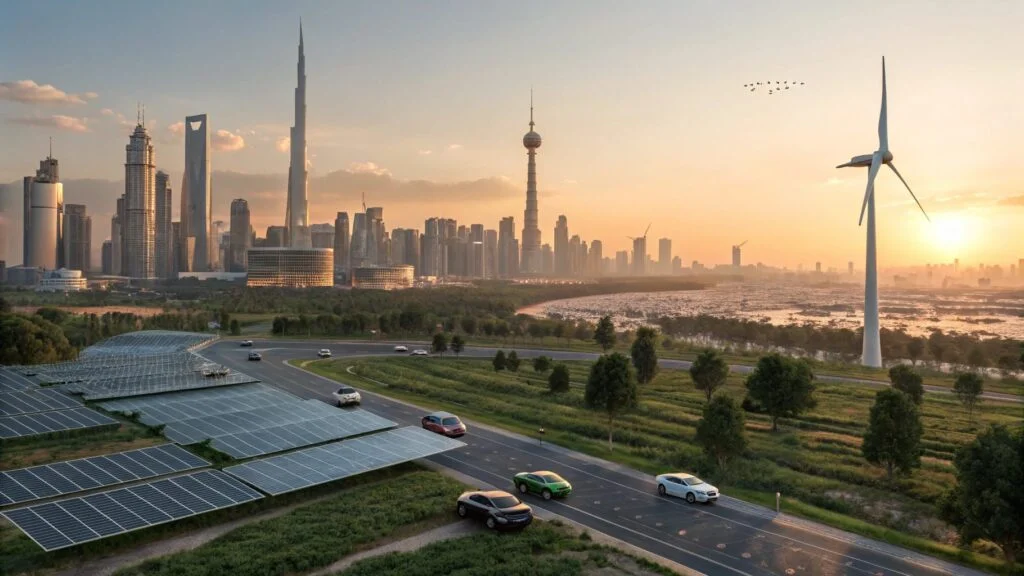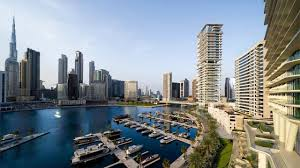Now Reading: UAE Residential Properties: 6 Tax Benefits You Might Miss
-
01
UAE Residential Properties: 6 Tax Benefits You Might Miss
UAE Residential Properties: 6 Tax Benefits You Might Miss

Table of Contents
The UAE’s residential properties real estate market in 2025, with AED 893 billion ($243 billion) in 2024 transactions and 7-11% rental yields, remains a top investment destination for American and global investors in freehold areas like Dubai Marina, Saadiyat Island, and Al Marjan Island.
The absence of personal income tax and capital gains tax, combined with the 9% corporate tax (effective June 2023, Federal Decree-Law No. 47 of 2022), 5% VAT (Federal Decree-Law No. 8 of 2017), and the 15% Domestic Minimum Top-up Tax (DMTT) for multinationals with revenues over €750 million (AED 3 billion) starting January 2025, creates unique tax benefits for residential property investors.
Below are six often-overlooked tax benefits for residential properties, ensuring compliance with Federal Tax Authority (FTA) regulations while maximizing returns for American investors in a tax-free personal income environment.
1. Corporate Tax Exemption for Individual Ownership

Individuals owning up to four residential properties are exempt from the 9% corporate tax on rental income or capital gains, provided they hold no UAE business license. For example, a U.S. investor owning three Jumeirah Village Circle (JVC) apartments generating AED 300,000 ($81,600) in annual rent avoids AED 27,000 in tax, preserving 7-9% yields. Action: Hold properties personally, register with RERA, and avoid FTA filings to maintain tax-free status.
2. VAT Exemption on Residential Sales (Post-First Sale)
Sales of residential properties after the initial developer sale are exempt from 5% VAT, per Federal Decree-Law No. 8 of 2017. Selling a AED 1.5 million ($408,000) Saadiyat Island villa in the secondary market saves AED 75,000 in VAT, enhancing 10-15% appreciation potential. Action: Focus on secondary market transactions and verify exemption eligibility with RERA-registered agents to ensure compliance.
3. VAT Exemption on Long-Term Residential Leases
Long-term residential leases (over six months) are exempt from 5% VAT, reducing costs for landlords and tenants. A AED 120,000 ($32,700) annual lease for an Al Marjan Island apartment saves AED 6,000 in VAT, boosting 6-8% rental yields. Action: Structure leases to exceed six months and maintain records for FTA audits, ensuring VAT-exempt status for residential rentals.
4. Deduction of Property-Related Expenses for Corporate Owners
Corporate investors can deduct expenses like maintenance, property management, and loan interest from taxable income under corporate tax rules. A company owning a AED 2 million ($545,000) Yas Island apartment with AED 200,000 in expenses (e.g., repairs, marketing) reduces taxable income, saving AED 18,000 in 9% tax after the AED 375,000 exemption. Action: Keep detailed, seven-year records and consult FTA-accredited advisors to maximize deductions, supporting 7-8% returns.
5. Zakat Optimization for Muslim Investors
Muslim American investors pay Zakat (2.5% on wealth above Nisab, ~AED 25,000/$6,800) only on rental income from residential properties after one lunar year, not on property value if held for long-term investment. A AED 3 million ($816,000) Ajman Corniche property generating AED 150,000 rent incurs AED 3,750 Zakat, not AED 75,000 on value. Action: Document investment intent and consult Islamic scholars for accurate Zakat calculations, aligning with 7-9% yields.
6. U.S.-UAE Double Taxation Agreement Credits
The U.S.-UAE double taxation agreement (DTA) allows non-resident investors to credit UAE corporate taxes paid against U.S. tax liabilities. A corporate investor paying AED 90,000 in 9% tax on AED 1 million ($272,000) Dubai South rental income offsets U.S. corporate tax (21%), minimizing double taxation. Action: File IRS Form 1118 (corporations) or Form 1040 (individuals), coordinating with tax advisors to leverage DTA benefits, preserving 10-15% appreciation.
Why These Benefits Matter for American Investors

These tax benefits enhance UAE’s 7-11% yields, outpacing global markets like New York (4.2%). Freehold ownership, no personal income tax, and visa programs (2-year Investor Visa for AED 750,000, Golden Visa for AED 2 million) drive demand, with 45% of Dubai’s 2025 buyers being foreign. Proximity to Dubai International Airport (20-45 minutes) adds value. Strategic tax planning maximizes returns in a market projecting 5-8% price growth.
Market Outlook and Challenges
Freehold zones like Al Marjan Island and Saadiyat Island expect 10-15% appreciation in 2025, but the DMTT’s 15% rate for MNEs and stricter AML compliance pose challenges. A potential 10-15% correction in 2026 due to oversupply (41,000 Dubai units) requires caution. Non-compliance with corporate tax or VAT filings (nine-month or 28-day deadlines) risks penalties up to AED 10,000. RERA-registered agents and FTA consultants ensure compliance.
Conclusion
Corporate tax exemptions, VAT exemptions on sales and leases, expense deductions, Zakat optimization, and DTA credits are six tax benefits often missed by investors in UAE residential properties. These strategies maximize 7-11% ROI for American investors in a dynamic 2025 market. Expert guidance ensures compliance and long-term wealth creation in Dubai, Abu Dhabi, and Ras Al Khaimah. Residential Properties
read more: Corporate Tax on Commercial Real Estate in the UAE: 5 Things to Know in 2025





















